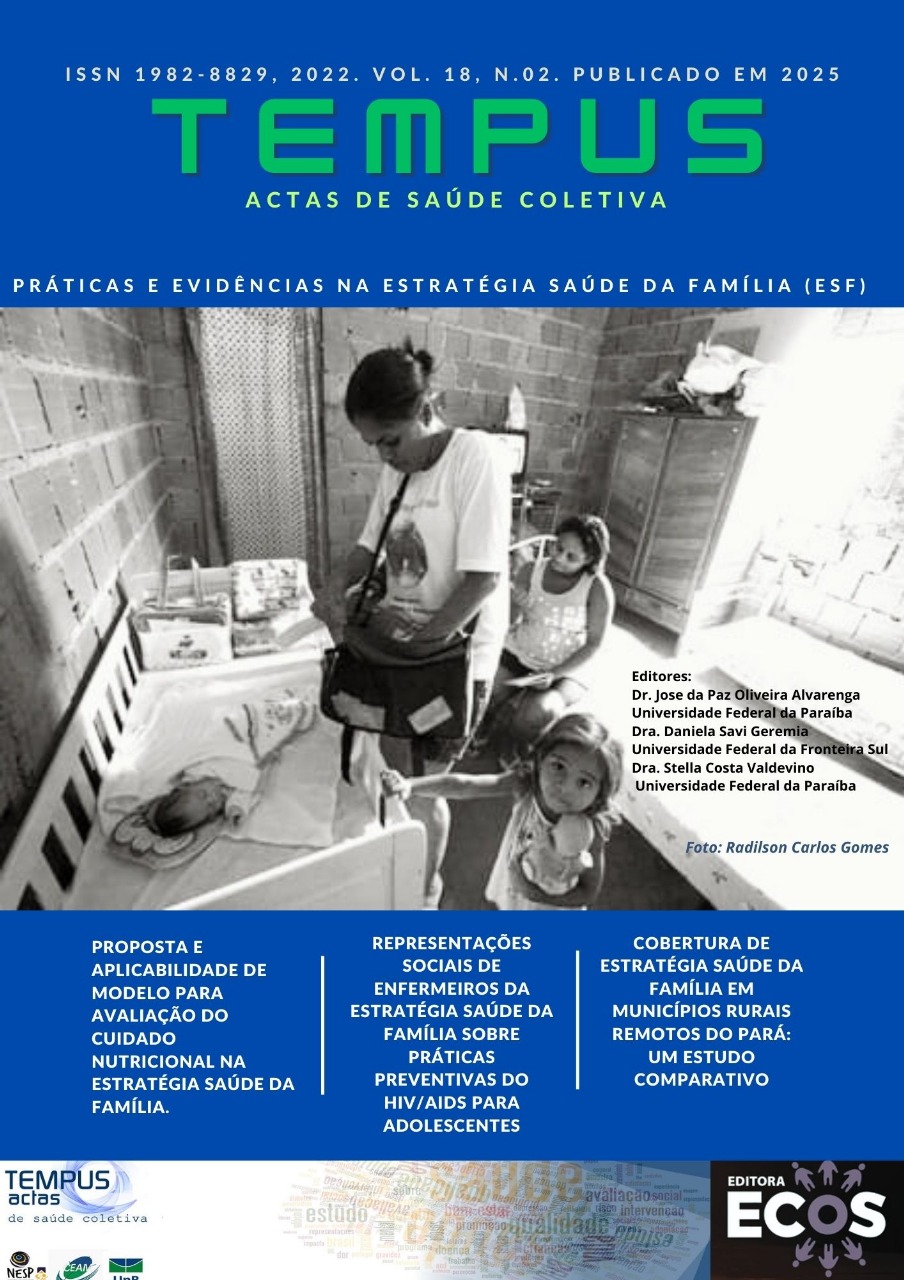Resumo
A Estratégia de Saúde da Família (ESF) exerce papel fundamental no acesso da pessoa idosa domiciliada à visita domiciliar, o que possibilita compreender e planejar intervenções de saúde. Objetivos: Caracterizar pessoas idosas restritas ao domicílio e identificar ações realizadas pela ESF. Métodos: Estudo transversal, com pessoas idosas restritas ao domicílio e seus cuidadores residentes na área de abrangência de uma UBS em Juiz de Fora/MG. Foi aplicado instrumento estruturado baseado nas diretrizes do Ministério da Saúde. Resultados: A média de idade foi 79,53 (±8,99) anos, maioria mulheres, casados ou viúvos. A doença crônica mais comum foi a Hipertensão Arterial. A média de tempo de restrição foi 62,10 (±44,32) meses, maioria por condição física, todos têm cuidador. 70,0% recebem ou já receberam visita domiciliar de pelo menos um profissional da APS, 30% nunca receberam e 42,8% tiveram a visita interrompida. Maioria satisfeita com os procedimentos realizados pela equipe. Conclusão: A equipe de ESF realiza os procedimentos de acordo com o preconizado. O obstáculo é observado na continuidade do cuidado, devido a grande quantidade de interrupções e na abrangência da identificação da necessidade de visita.

Este trabalho está licenciado sob uma licença Creative Commons Attribution 4.0 International License.
Copyright (c) 2025 Tempus – Actas de Saúde Coletiva
